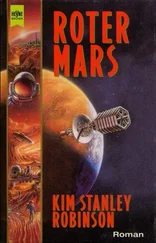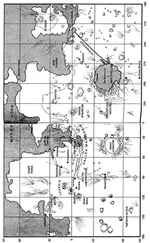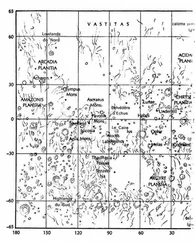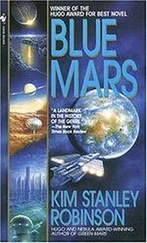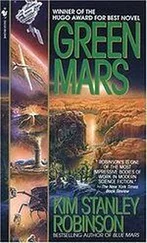When you expect to live another two hundred years, you behave differently from when you expect to live only twenty.
This they proved almost immediately. John spent the winter there at Acheron, on the edge of the CO 2fog cap that still descended over the North Pole every winter, studying areobotany with Marina Tokareva and her lab group. He did this on Sax’s instruction, and because he felt in no hurry to leave. Sax seemed to have forgotten about the search to find out who the saboteurs were, which made John a little suspicious. In his spare time he still made efforts through Pauline, concentrating on the areas he had been working on before Acheron, travel records mostly, and then employment records of all the people who had traveled to the areas where the sabotages had taken place. Presumably there were a lot of people involved, so individual travel records might not tell him much. But everyone on Mars had been sent there by an organization, and by checking which organizations had sent people to the relevant places, he hoped to get some indications. It was a messy business, and he had to rely on Pauline not only for statistics but advice, which was worrying.
The rest of the time he studied a branch of areobotany in which all the payoffs were at least decades away. Why not? He had the time, and might very well see the fruits of the work. So he watched Marina’s group design a new tree, studying with them and doing their lab work, washing glassware and the like. The tree was designed to serve as the canopy of a multi-layered forest which they hoped to grow on the dunes of Vastitas Borealis. It was based on a sequoia genome, but they wanted trees even bigger than sequoias, perhaps 200 meters tall, with a trunk fifty meters in diameter at the base. Their bark would stay frozen most of the time, and their broad leaves, which would probably look as if they had tobacco leaf disease, were going to be able to absorb the baseline dose of UV radiation without damage to their purplish undersides. At first John thought the trees’ size was excessive, but Marina pointed out that they would be capable of taking in great quantities of carbon dioxide, fixing the carbon and transpiring the oxygen back into the air. And they were going to be quite a sight, or so they supposed; the actual shoots of the competing test prototypes were only ten meters tall, and it would be twenty years before the winners of the competition reached their mature heights. And right now all the prototypes still died in Mars jars; atmospheric conditions would have to change considerably before they would survive outdoors. Marina’s lab was getting ahead of the game.
But so was everyone else. This seemed to be a result of the treatment, it made sense on the face of it. Longer experiments. Longer (John groaned) investigations. Longer thoughts.
In many respects, however, nothing changed. John felt about the same as before, except it didn’t take omegendorph to get an occasional buzz humming through him, as if he had recently finished swimming a couple of kilometers, or cross-country skiied for an afternoon, or, yes, taken a dose of omegendorph. Which now would have been carrying coals to Newcastle. Because things glowed. When he took the crest walk, the whole visible world glowed: stilled bulldozers, a crane like a gallows, he could watch anything for minutes on end. Maya left for Hellas, and it didn’t matter; their relations were back on the old rollercoaster ride, a lot of bickering and fits of temper on her part, but all that seemed unimportant, floating inside the glow, changing nothing in the way he felt toward her, or in the way she had, from time to time, turned on him that look of hers. He would see her in a few months, and talk to her on screen; meanwhile this was a separation he was not entirely unhappy to see.
It was a good winter. He learned a lot about areobotany and bioengineering, and in many of the evenings, after dinner, he would ask the Acheron people both individually and severally what they thought the eventual Martian society should be like, and how it should be run. At Acheron this usually led directly to considerations of ecology, and its deformed offshoot economics; these to them were much more critical than politics, or what Marina called “the supposed decision-making apparatus.” Marina and Vlad were particularly interesting on this topic, as they had worked out a system of equations for what they called “eco-economics,” which always sounded to John like “eco-economics.” He liked listening to them explain the equations, and he asked them a lot of questions, learning about concepts like carrying capacity, coexistence, counteradaptation, legitimacy mechanisms, and ecologic efficiency. “That’s the only real measure of our contribution to the system,” Vlad would say. “If you burn our bodies in a microbomb calorimeter you’ll find we contain about six or seven kilocalories per gram of weight, and of course we take in a lot of calories to sustain that through our lives. Our output is harder to measure, because it’s not a matter of predators feeding on us, as in the classic efficiency equations— it’s more a matter of how many calories we create by our efforts, or send on to future generations, something like that. And most of that is very indirect, naturally, and it involves a lot of speculation and subjective judgment. If you don’t go ahead and assign values to a number of non-physical things, then electricians and plumbers and reactor builders and other infrastructural workers would always rate as the most productive members of society, while artists and the like would be seen as contributing nothing at all.”
“Sounds about right to me,” John joked, but Vlad and Marina ignored him.
“Anyway that’s a large part of what economics is— people arbitrarily, or as a matter of taste, assigning numerical values to non-numerical things. And then pretending that they haven’t just made the numbers up, which they have. Economics is like astrology in that sense, except that economics serves to justify the current power structure, and so it has a lot of fervent believers among the powerful.”
“Better just to concentrate on what we’re doing here,” Marina put in. “The basic equation is simple, efficiency merely equals the calories you put out, divided by the calories you take in, times one hundred to put it in the form of a percentage. In the classic sense of passing along calories to one’s predator, ten percent was average, and twenty percent doing really well. Most predators at the tops of food chains did more like five percent.”
“This is why tigers have ranges of hundreds of square kilometers,” Vlad said. “Robber barons are not really very efficient.”
“So tigers don’t have predators not because they’re so tough, but because it’s not worth the effort,” John said.
“Exactly!”
“The problem is in calculating the values,” Marina said. “We have had to simply assign certain calorie-equivalent numerical values to all kinds of activities, and then go on from there.”
“But we were talking about economics?” John said.
“But this is economics, don’t you see, this is our eco-economics! Everyone should make their living, so to speak, based on a calculation of their real contribution to the human ecology. Everyone can increase their ecological efficiency by efforts to reduce how many kilocalories they use— this is the old Southern argument against the energy consumption of the Northern industrial nations. There was a real ecologic basis to that objection, because no matter how much the industrial nations produced, in the larger equation they could not be as efficient as the South.”
“They were predators on the South,” John said.
“Yes, and they will become predators on us too, if we let them. And like all predators their efficiency is low. But here, you see— in this theoretical state of independence that you speak of—” she grinned at John’s look of consternation—”you do, you have to admit that that is ultimately what you talk about all the time, John— well, there it should be the law that people are rewarded in proportion to their contribution to the system.”
Читать дальше
Конец ознакомительного отрывка
Купить книгу


